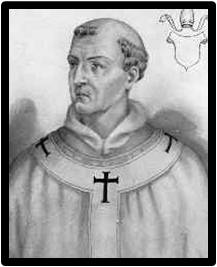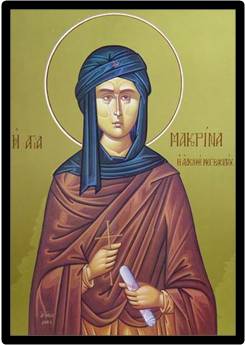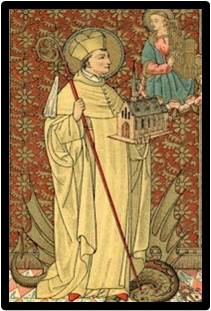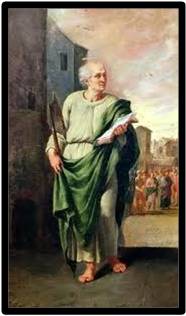JULY 17 - ST. LEO IV

St. Leo was born at Rome, in Italy and spent his life in that city. When Leo grew up he studied at the Benedictine monastery near St. Peter’s Basilica to become a priest. As a priest he performed his ministry at St. John Lateran’s, a large, famous basilica. Leo was well-known and loved by two popes, Gregory IV who died in 844, and Sergius II who died in 847.
Around the time Pope Sergius II died, rumors of a barbarian invasion of Saracens had the Romans terrified. Neither the people nor the cardinals wanted to be left without a pope. Leo’s life changed forever, because they quickly elected him as pope and he took the name Leo IV.
As pope, Leo had the city walls around the Vatican and other areas repaired and strengthened. The walls had been damaged the previous year by a Saracen attack. He made the churches more beautiful and had St. Peter’s Basilica rebuilt. He brought many relics (remains of things that were holy) to Rome.
He called a meeting of all Roman priests and passed forty-two rules which helped priests live more fervent, prayerful and joy-filled lives. A few bishops lived bad lives and this caused Leo great suffering. They boldly faced the pope and would not change their wrong ways. No matter how much Pope Leo was hurt, he was always fair, patient and humble. He never let his troubles dishearten him but gave all his time and energy for Jesus and his Church.
He loved the beautiful prayers of the liturgy and encouraged liturgical chant and music. People loved St. Leo and with God’s grace he performed many miracles. It is said that he was responsible for stopping the terrible fire in the English quarter of Rome.
Pope Leo IV continued serving the Church with cheerfulness right up to the end of his life. He died on July 17, 855.



